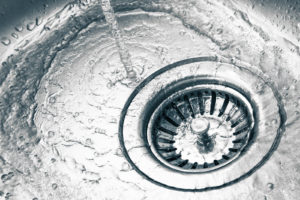You should always ensure that your kitchen is in excellent condition. This extends to your kitchen’s functionality and sanitation, which means that all your kitchen fixtures and appliances should always be clean and in good working condition. The kitchen is the nutrition capital of the house. You should hence ensure that all your kitchen installations are functioning properly to furnish the nutrition needs in your household. The kitchen plumbing system should always be in tiptop condition to ensure adequate water supply and proper waste disposal from the kitchen into the swerve system. The following plumbing tips will help you solve some of the most common kitchen plumbing issues without necessarily calling a professional plumber.
Unclogging Drains
Clogged drains are some of the most common plumbing issues in any house. This plumbing problem mostly occurs in the bathroom and in the kitchen where lots of waste products are disposed of into the drainage system. Clogged kitchen drains are usually caused by the buildup of oils, fats, greases, and other insoluble waste in the kitchen drainage pipes. Most people install garbage disposal units beneath the kitchen sinks to shred all solid debris before flushing it down the drainage system. Sometimes the garbage disposal system fails or some of the sticky debris like greases and oils accumulate inside the kitchen drain pipes thereby clogging the kitchen drainage system. You can try to unclog the kitchen sinks with a plunger. If the plunger fails, you can pour hot water down the sink drains. This will help to melt or liquefy any oils, fats, and greases that might be trapped inside the kitchen drain pipes. If the plunger and hot water fails, you can try to flush the kitchen drains with a baking soda and vinegar solution. You can also use commercial unclogging detergents to unclog your kitchen drains. Make sure to use organic compounds that are not hazardous to you or to the environment when unclogging your kitchen drains. And if all these DIY remedies fail, call a professional plumber to unclog your kitchen drains.
Fixing Leaks
Kitchen leaks can occur in the water supply system or in the drainage system. The water supply system can start leaking if the pipes are faulty or if your kitchen fixtures and/or appliances, such as leaking faucets or dishwashers, are malfunctioning. The kitchen drainage system is responsible for draining away or disposing off all waste from the kitchen. You might notice some leaks in the kitchen sinks or in the drain pipes connected to the kitchen sinks. You should inspect your kitchen plumbing system regularly to ensure that there are no leaks in the piping system or the fixtures and appliances. And in case you notice any water leakages in your kitchen, try to determine the fault and then call a plumbing professional for a permanent solution.
Kitchen Installations, Repairs And Upgrades
In addition to the two common kitchen plumbing issues discussed above, you might also need other fixes and upgrades in your kitchen. You could be installing new kitchen fixtures and appliances or upgrading or replacing old ones with new models. Depending on the nature of your kitchen plumbing needs, you will need to hire a plumbing specialist to handle them. For instance, if you have a water heater problem in your kitchen, then you need to contact a licensed and certified DC water heater plumber to fix the issue immediately. And if you wish to renovate or remodel your entire kitchen, you can use the services of any professional kitchen remodeler in your locality.




